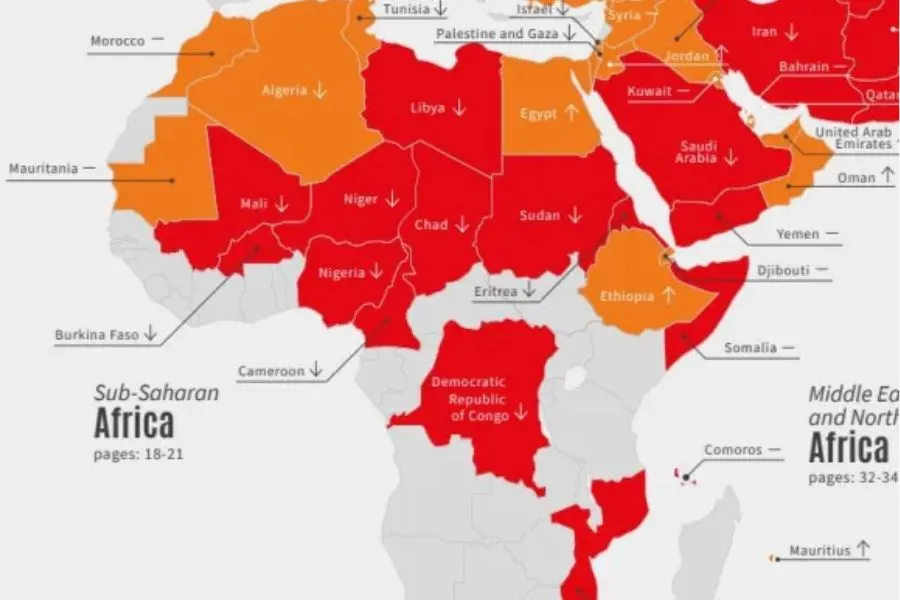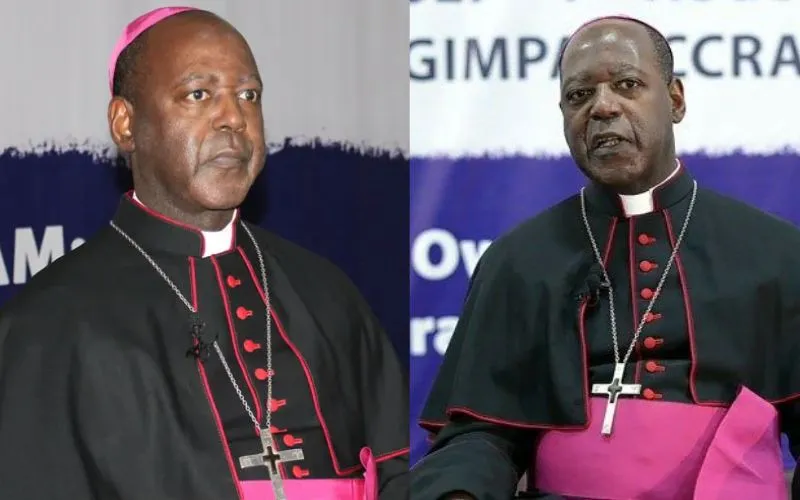According to the ACN report, despite the presence of French and UN troops, Central Mali has become a main arena for the insurgency between armed groups and the West African country’s government.
Investigations by ACN have found that Christians in some parts of Mali are prevented from religious worship, particularly celebrating Holy Mass, due to some Malian imams who launch verbal assaults against Christians in their preaching, worsening the already precarious situation.
In Sudan, ACN notes emerging violations by non-state actors as opposed to the previous regime.
“During the al-Bashir period, violations of freedom of religion or belief were primarily perpetrated by the government and its agencies. During the period leading up to the coup of October 2021, however, there was an increase in violations by non-state actors, which were not properly investigated, and perpetrators rarely brought to justice,” reads in part ACN Religious Freedom Report 2023.
In Somalia, Christians and other non-Muslim religious groups have reported their inability to practice their religion openly.
(Story continues below)
“There are no places of worship for non-Muslims in the country, and there isn't a single church in Somalia, other than the Mogadishu Cathedral, which is no longer used for Christian worship due to repair concerns,” the report indicates.
The report also brings to the fore the growing terrorist jihadism, which is described as primarily a military one, and in the Eastern regions of DRC, which continue to suffer from terrorism, including kidnappings, atrocities and killings, and mass displacement particularly concentrated in the region of Beni.
Although DRC’s Eastern borderlands are home to more than 100 different militias, repeated and egregious attacks against religious leaders and civilians persist from the Muslim rebel group, the Allied Democratic Forces (ADF).
Chad is also experiencing a period of major turmoil, the report published June 22 indicates, adding, “Internal conflicts related to land as well as intercommunal violence between farmers and herders and Arab and non-Arab groups, have been complicated by the presence of foreign jihadi militants such as Boko Haram … which have killed hundreds of people and displaced thousands.”
Since 2014, Cameroon has also been destabilized by a serious external threat, namely violence from radical Islamist groups spilling over from the neighboring countries of Nigeria and Chad.
In Niger, authorities have lost control in the Western and Southern parts of the country, where extremist Islamist groups have been particularly active.
ACN reports that in Burkina Faso, attacks perpetrated by movements affiliated with Al Qaeda and the Islamic State predominantly in the Northern and Eastern regions of Burkina Faso have resulted in the death of more than 2000 civilians and soldiers.
Additionally, more than two million people have been displaced in one of the most adversely affected countries in Africa by jihadism.
Listed number six out of 163 countries in the Global Terrorism Index (GTI), Nigeria is, perhaps, the most affected African country by religious extremism.
A report released by the United Nations Development Program (UNDP) Nigeria in June 2021, estimated that through the end of 2020, the conflict in the North-east had resulted in nearly 350,000 deaths, with 314,000 of those from indirect causes.
In an attempt to describe the grim picture of Africa’s most populous nation, ACN says in the report, “Religious freedom in Nigeria is under grave threat, principally as a consequence of legal measures that support the discrimination against Christians in the northern states as well as severe and relentless atrocities committed throughout the country.”
Meanwhile, the Religious Freedom Report 2023 lists other categories of religious-based restriction, including the discrimination category that includes 33 countries that together, are home to almost 853 million people.
In this category, new laws are being enforced, effectively legalizing the violation of freedom of thought, conscience, and religion of specific groups. In Africa, these countries include Ethiopia, Egypt, Morocco, Tunisia, Algeria, and Madagascar.
Countries listed under observation in Africa include South Sudan, Kenya, Uganda, Rwanda, Burundi, Guinea Conakry, Ghana, and Togo.
In the report, Szymanski notes that the “under observation” classification includes “countries where newly emerging factors of concern have been observed which have the potential to cause a fundamental breakdown in freedom of religion.”
He says that though the remainder of the countries were not classified, “that does not necessarily mean all was perfect in matters relating to religious freedom.”
Agnes Aineah is a Kenyan journalist with a background in digital and newspaper reporting. She holds a Master of Arts in Digital Journalism from the Aga Khan University, Graduate School of Media and Communications and a Bachelor's Degree in Linguistics, Media and Communications from Kenya's Moi University. Agnes currently serves as a journalist for ACI Africa.








